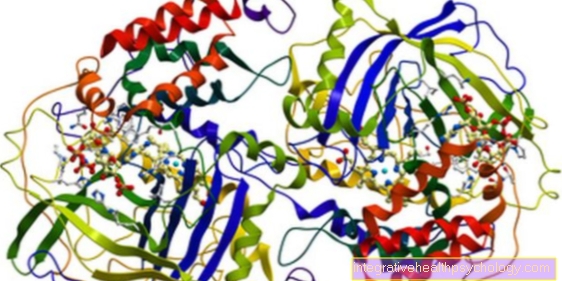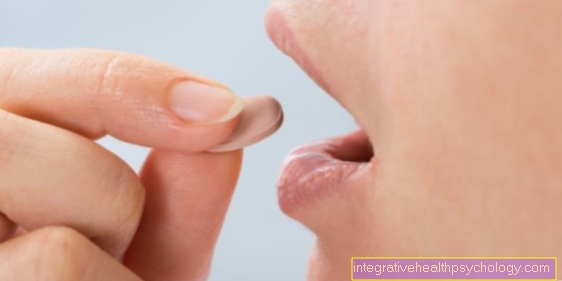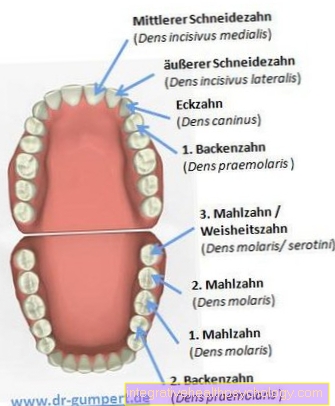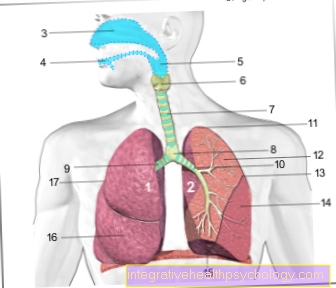When do I have to see a doctor with a cold?
introduction
A cold is usually harmless and usually goes away on its own within a week. Even treatment does not shorten the duration, only the severity of the symptoms of the cold can be alleviated by various means.
However, there are certain warnings for which a visit to the doctor is advisable. However, there are certain patient groups who should consult a doctor at the first sign of a cold.

When should you go to the doctor with a cold?
If certain other symptoms occur in addition to the typical cold symptoms, the cold symptoms increase significantly in intensity or last for an unusually long time, if a doctor should be consulted with a cold that initially appeared harmless.
The main warning symptoms include:
- Fever over 39 ° C (increasing)
- severe cough with yellowish sputum
- frequent nosebleeds
- severely swollen lymph nodes in the neck and head area
- severe pain in the neck, head or chest area
- Typical cold symptoms last longer than 7-10 days
In addition, there are also patients who, even without these warning symptoms, should go to the doctor at the first sign of a cold. Which includes
- Immunosuppressed patients
- Asthmatics and patients with COPD
- Pregnant women
- baby
- Patients with advanced heart failure
Also read our topics:
- Chronic cold
- Superinfection
A cold, which in most cases is triggered by viruses, is usually accompanied by unpleasant but nevertheless rather harmless cold symptoms such as sore throat, cough, runny nose, headache and body aches as well as tiredness and weakness. These symptoms usually go away on their own within seven days, regardless of the initiated therapy.
If they do not do this, a doctor should be consulted. But even beforehand, if the symptoms are significantly worse and not slowly improving as expected, it is advisable to see your doctor. Further warning symptoms that can accompany a cold require a visit to the doctor: significantly increased temperatures (fever above 39 ° C) as well as the other symptoms already mentioned above.
However, a cold should not be played down, as the body is weakened overall. In particular, sport or strenuous physical work should be avoided during a cold, as the infection can spread to the heart. The heart muscle is weakened and the result is an inflammation of the heart muscle (myocarditis), which can be life-threatening.
Read on below:
- What is a procrastinated cold?
- Course of a cold
Should my baby see a doctor if they have a cold?
If the first symptoms of a cold appear in babies under three months of age, regardless of the type and intensity of the symptoms, a pediatrician should be consulted directly without waiting.
In older babies, if you have mild cold symptoms, you can wait until you see certain warning symptoms and go to the pediatrician.
These typical warning symptoms include, for example, persistent cold symptoms that do not improve for five days, signs of shortness of breath (difficult breathing, nostrils, skin retraction in the area above the sternum that is synchronized with breathing), fever above 38 ° C, coughing up yellowish or greenish mucus, clear Sluggishness or tiredness, changed drinking / eating habits and rubbing or pulling of the ear as possible signs of earache.
Find out more at: My baby has a cold - what to do?
When does a child with a cold need to see a doctor?
When to go to the doctor with a child's cold, basically corresponds to the guidelines for babies from 3 months of age:
- Fever over 38 ° C
- Cold symptoms persist for five to seven days
- cold symptoms worsening significantly
- Signs of difficult breathing (increased breathing rate, breathing sounds)
- Difficulty breathing, yellowish, greenish or brownish expectoration when coughing
- Evidence of ear pain as a sign of an accompanying ear infection (otitis media)
- excessive sluggishness or fatigue
- changed drinking, eating or gaming habits
In most cases, however, it is a harmless viral infection in children, which is anything but rare in toddler age, as the child's immune system is still in the learning phase.
Learn more at. Home remedies for a cold
Recommendations from the editorial team
- My baby has a cold - what to do?
- Home remedies for a cold
- Do you need antibiotics if you have a cold?
- Exercise and colds - what you should pay attention to!
- Sick leave with a cold


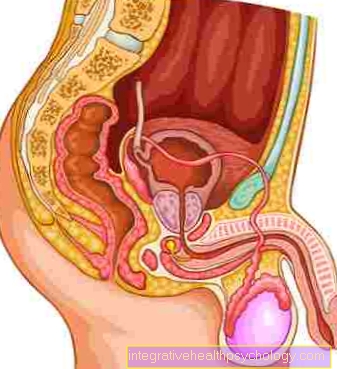


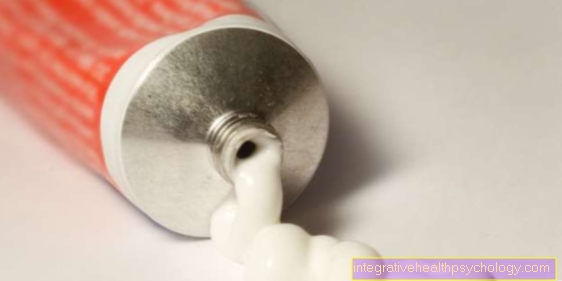


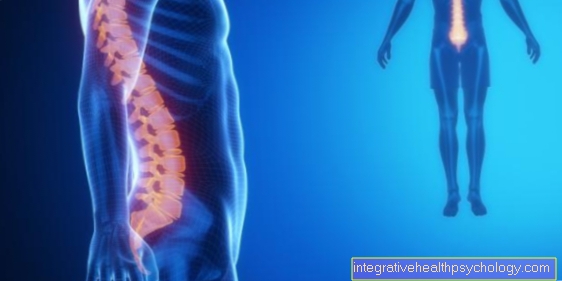
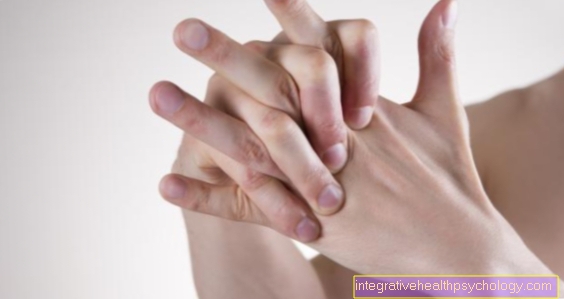

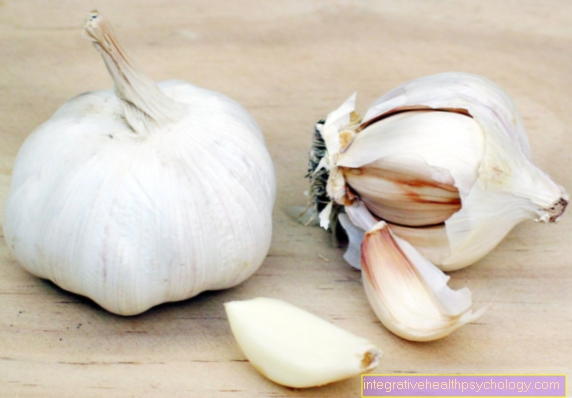

.jpg)


